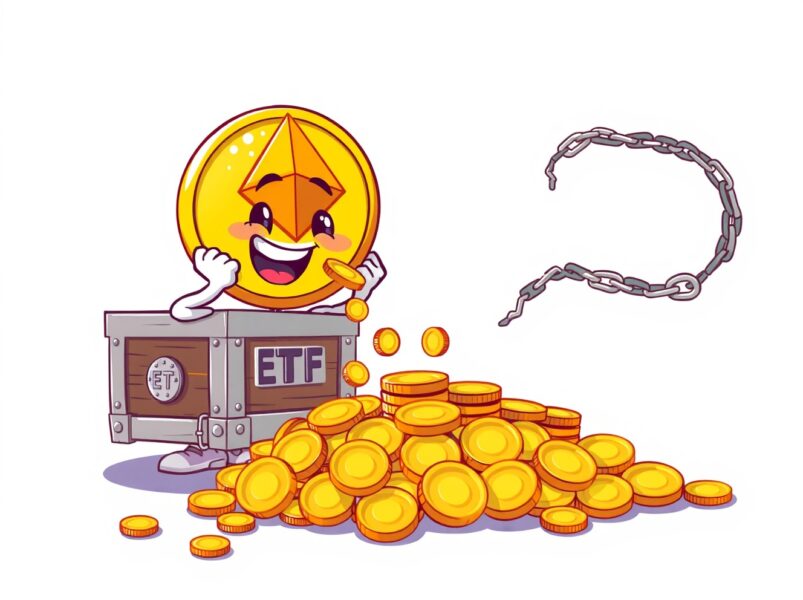| COINOTAG recommends • Exchange signup |
| 💹 Trade with pro tools |
| Fast execution, robust charts, clean risk controls. |
| 👉 Open account → |
| COINOTAG recommends • Exchange signup |
| 🚀 Smooth orders, clear control |
| Advanced order types and market depth in one view. |
| 👉 Create account → |
| COINOTAG recommends • Exchange signup |
| 📈 Clarity in volatile markets |
| Plan entries & exits, manage positions with discipline. |
| 👉 Sign up → |
| COINOTAG recommends • Exchange signup |
| ⚡ Speed, depth, reliability |
| Execute confidently when timing matters. |
| 👉 Open account → |
| COINOTAG recommends • Exchange signup |
| 🧭 A focused workflow for traders |
| Alerts, watchlists, and a repeatable process. |
| 👉 Get started → |
| COINOTAG recommends • Exchange signup |
| ✅ Data‑driven decisions |
| Focus on process—not noise. |
| 👉 Sign up → |
Nigeria’s Securities and Exchange Commission reports over $50 billion in cryptocurrency transactions from July 2023 to June 2024, highlighting how crypto and gambling divert funds from productive investments. With fewer than 3 million capital market investors amid 240 million people, daily $5.5 million gambling stakes exacerbate economic challenges like inflation and poverty.
-
Cryptocurrency transactions in Nigeria exceeded $50 billion in the past year, per SEC data.
-
Daily gambling activity involves over 60 million Nigerians, staking $5.5 million collectively.
-
Capital market participation remains low at under 4% of adults, contributing just 30% of GDP in listed assets, compared to 300% in South Africa.
Nigeria’s SEC warns of $50 billion crypto surge and daily $5.5M gambling amid low investment. Discover impacts on economy and regulatory responses for sustainable growth.
What Are the Latest Insights on Nigeria’s Cryptocurrency Transactions from the SEC?
Nigeria’s cryptocurrency transactions have surged dramatically, with the Securities and Exchange Commission (SEC) reporting over $50 billion in volume between July 2023 and June 2024. This influx is fueled by high inflation rates exceeding double digits, a naira depreciation of nearly 70% since May 2023, and widespread poverty affecting more than half the population. Dr. Emomotimi Agama, SEC Director-General, emphasized that these factors drive citizens toward quick-return options like crypto rather than long-term investments, straining the broader economy.
| COINOTAG recommends • Professional traders group |
| 💎 Join a professional trading community |
| Work with senior traders, research‑backed setups, and risk‑first frameworks. |
| 👉 Join the group → |
| COINOTAG recommends • Professional traders group |
| 📊 Transparent performance, real process |
| Spot strategies with documented months of triple‑digit runs during strong trends; futures plans use defined R:R and sizing. |
| 👉 Get access → |
| COINOTAG recommends • Professional traders group |
| 🧭 Research → Plan → Execute |
| Daily levels, watchlists, and post‑trade reviews to build consistency. |
| 👉 Join now → |
| COINOTAG recommends • Professional traders group |
| 🛡️ Risk comes first |
| Sizing methods, invalidation rules, and R‑multiples baked into every plan. |
| 👉 Start today → |
| COINOTAG recommends • Professional traders group |
| 🧠 Learn the “why” behind each trade |
| Live breakdowns, playbooks, and framework‑first education. |
| 👉 Join the group → |
| COINOTAG recommends • Professional traders group |
| 🚀 Insider • APEX • INNER CIRCLE |
| Choose the depth you need—tools, coaching, and member rooms. |
| 👉 Explore tiers → |
How Do Gambling and Crypto Affect Nigeria’s Capital Market Participation?
The rise in gambling and cryptocurrency activities is significantly undermining Nigeria’s capital market, where participation is alarmingly low. According to SEC figures, fewer than 3 million Nigerians—out of a 240 million population—engage in capital market investments, representing less than 4% of adults. In contrast, over 60 million people participate in daily gambling, staking a combined $5.5 million, which diverts substantial household funds from productive sectors.
This shift has resulted in listed assets on the capital market accounting for only 30% of Nigeria’s GDP. For comparison, South Africa’s market capitalization exceeds 300% of GDP, Malaysia’s is over 120%, and India’s stands at around 90%, as noted by Agama in recent statements. The SEC highlights that this disparity hampers the country’s ability to finance critical infrastructure, facing an annual shortfall of approximately $150 billion.
| COINOTAG recommends • Exchange signup |
| 📈 Clear interface, precise orders |
| Sharp entries & exits with actionable alerts. |
| 👉 Create free account → |
| COINOTAG recommends • Exchange signup |
| 🧠 Smarter tools. Better decisions. |
| Depth analytics and risk features in one view. |
| 👉 Sign up → |
| COINOTAG recommends • Exchange signup |
| 🎯 Take control of entries & exits |
| Set alerts, define stops, execute consistently. |
| 👉 Open account → |
| COINOTAG recommends • Exchange signup |
| 🛠️ From idea to execution |
| Turn setups into plans with practical order types. |
| 👉 Join now → |
| COINOTAG recommends • Exchange signup |
| 📋 Trade your plan |
| Watchlists and routing that support focus. |
| 👉 Get started → |
| COINOTAG recommends • Exchange signup |
| 📊 Precision without the noise |
| Data‑first workflows for active traders. |
| 👉 Sign up → |
Dr. Agama pointed out, “An appetite for risk clearly exists, but not the trust or access to channel that energy into the productive sector.” This trend, he added, poses a direct obstacle to economic growth and capital formation, with citizens favoring immediate gains from gambling, crypto trading, and foreign exchange speculation over patient investments. To counter this, President Bola Tinubu enacted a new investment and securities law earlier this year, which integrates assets like cryptocurrency into regulated frameworks without outright bans, acknowledging their entrenched role in the financial system.
The SEC is now focusing on innovation, aiming to develop new financial products and leverage technology to enhance accessibility for everyday Nigerians. By simplifying investment processes, the regulator seeks to redirect risk appetite toward sustainable channels, potentially boosting capital market engagement and supporting national development goals.
| COINOTAG recommends • Traders club |
| ⚡ Futures with discipline |
| Defined R:R, pre‑set invalidation, execution checklists. |
| 👉 Join the club → |
| COINOTAG recommends • Traders club |
| 🎯 Spot strategies that compound |
| Momentum & accumulation frameworks managed with clear risk. |
| 👉 Get access → |
| COINOTAG recommends • Traders club |
| 🏛️ APEX tier for serious traders |
| Deep dives, analyst Q&A, and accountability sprints. |
| 👉 Explore APEX → |
| COINOTAG recommends • Traders club |
| 📈 Real‑time market structure |
| Key levels, liquidity zones, and actionable context. |
| 👉 Join now → |
| COINOTAG recommends • Traders club |
| 🔔 Smart alerts, not noise |
| Context‑rich notifications tied to plans and risk—never hype. |
| 👉 Get access → |
| COINOTAG recommends • Traders club |
| 🤝 Peer review & coaching |
| Hands‑on feedback that sharpens execution and risk control. |
| 👉 Join the club → |
Frequently Asked Questions
What Drives the High Volume of Cryptocurrency Transactions in Nigeria?
Economic pressures like double-digit inflation, a 70% naira devaluation since May 2023, and poverty affecting over 50% of the population fuel Nigeria’s $50 billion cryptocurrency transactions from July 2023 to June 2024, according to the SEC. Citizens seek quick returns amid limited traditional investment options, leading to widespread adoption despite regulatory scrutiny.
Why Is Capital Market Investment So Low in Nigeria Compared to Gambling?
Nigeria’s capital market sees under 4% adult participation due to low trust, limited access, and preference for immediate-risk options like gambling, which involves 60 million daily users staking $5.5 million. The SEC notes this results in only 30% GDP from listed assets, far below global peers, hindering infrastructure funding and long-term growth.
Key Takeaways
- Crypto Surge Highlights Economic Strain: Over $50 billion in transactions reflect inflation and currency woes, diverting funds from productive investments per SEC data.
- Gambling Dominates Daily Habits: 60 million Nigerians stake $5.5 million daily, contrasting with just 3 million capital market investors, limiting GDP contributions to 30%.
- Regulatory Reforms Aim for Balance: New laws integrate crypto under SEC oversight, promoting innovative products to boost participation and address the $150 billion infrastructure gap.
Conclusion
Nigeria’s cryptocurrency transactions and gambling trends, as detailed by the Securities and Exchange Commission, underscore a critical shift in financial behaviors amid economic hardships, with the capital market suffering from low engagement and a mere 30% GDP representation. Dr. Emomotimi Agama’s insights reveal untapped potential in redirecting risk appetite through regulated channels and technological advancements. As the SEC advances its Capital Market Masterplan revisions, addressing barriers like low retail participation and infrastructure shortfalls, Nigeria stands poised for more inclusive growth—investors and policymakers alike should prioritize building trust in sustainable markets to foster lasting economic resilience.
| COINOTAG recommends • Members‑only research |
| 📌 Curated setups, clearly explained |
| Entry, invalidation, targets, and R:R defined before execution. |
| 👉 Get access → |
| COINOTAG recommends • Members‑only research |
| 🧠 Data‑led decision making |
| Technical + flow + context synthesized into actionable plans. |
| 👉 Join now → |
| COINOTAG recommends • Members‑only research |
| 🧱 Consistency over hype |
| Repeatable rules, realistic expectations, and a calmer mindset. |
| 👉 Get access → |
| COINOTAG recommends • Members‑only research |
| 🕒 Patience is an edge |
| Wait for confirmation and manage risk with checklists. |
| 👉 Join now → |
| COINOTAG recommends • Members‑only research |
| 💼 Professional mentorship |
| Guidance from seasoned traders and structured feedback loops. |
| 👉 Get access → |
| COINOTAG recommends • Members‑only research |
| 🧮 Track • Review • Improve |
| Documented PnL tracking and post‑mortems to accelerate learning. |
| 👉 Join now → |
Source: https://en.coinotag.com/nigerias-sec-warns-crypto-and-gambling-may-divert-investments-from-capital-markets/


